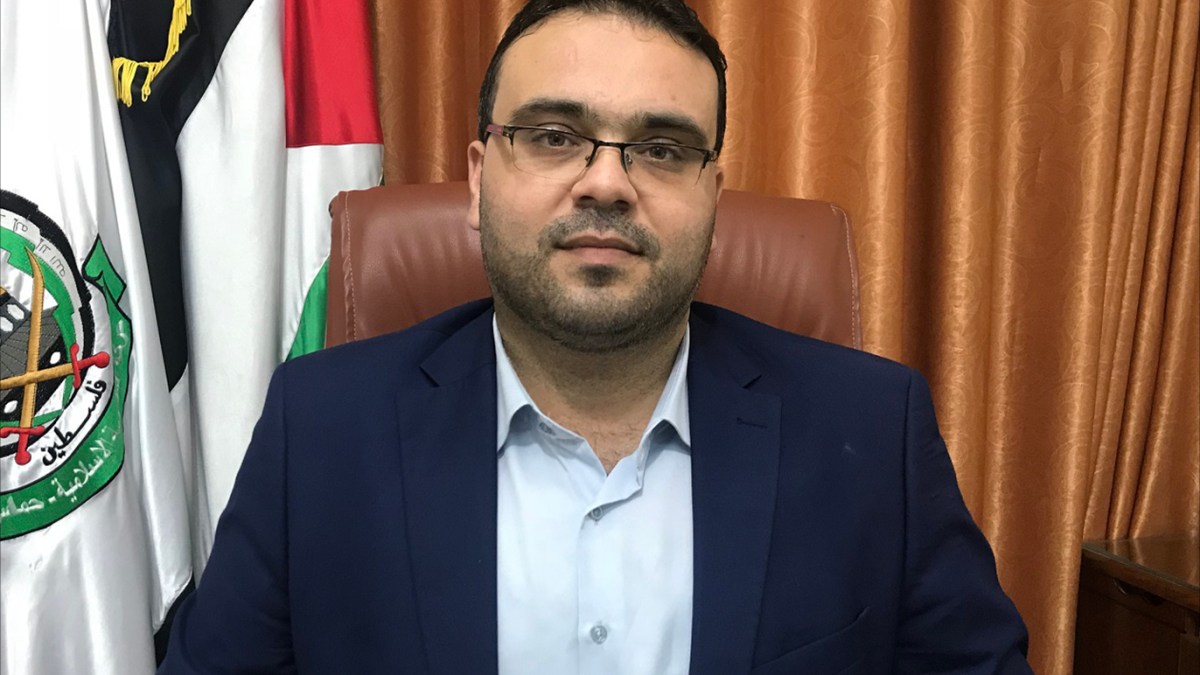The Islamic Resistance Movement (Hamas) affirmed that the Israeli raids on Gaza complete what it called the episodes of aggression launched by the occupation against the Palestinian people, their land and sanctities, and it is also part of the attack on the prisoners in prisons.
Hamas spokesman Hazem Qassem described the Israeli government as extremist, and said that its presence opened the door to field escalation.
For his part, Israeli Defense Minister Yoav Gallant vowed that the army would respond with great force to any shooting or any attempt to harm the lives of the Israeli population in the southern region.
Gallant added - in a tweet to him on Twitter - that last night the Israeli Air Force destroyed sites for the production and storage of weapons for Hamas.
The occupation army announced that it carried out air strikes in the Gaza Strip on Wednesday evening, hours after it intercepted a missile fired from the Strip, and there have been no reports yet of casualties.
Strong explosions shook the buildings, and the darkness of the night lit up the Gaza sky, while warning sirens sounded again in Israeli areas around the Strip to warn of the arrival of more missiles before dawn on Thursday.
These events come less than 36 hours after US Secretary of State Anthony Blinken visited the region with the aim of calling for calm, as he reaffirmed Washington's support for the two-state solution as a way to end the decades-old conflict.
Barbara Leaf, the chief US diplomat concerned with Middle East affairs, and Hadi Amr, the US special representative for Palestinian affairs, remained in the region to continue the truce talks between the Palestinian and Israeli sides.
Human rights arrests and convictions
In the West Bank, the occupation forces arrested 27 Palestinians - including 15 from the Ramallah and Al-Bireh governorates - in the past hours during raids in separate areas.
For its part, the Palestinian Prisoners Club said that the occupation forces took the detainees to security centers for interrogation on charges of incitement and resistance to the occupation.
Arrests are usually made by raiding Palestinian homes at night, then they are transferred to temporary detention centers in settlements before being transferred to the main interrogation centers or prisons.
The Prisoners' Club reported, in a report it issued last month, that the Israeli authorities had arrested more than 170 Palestinians in the West Bank and East Jerusalem since the beginning of this year. The report also said that 7,000 arrests were recorded during the past year.
On the other hand, the Israeli occupation forces demolished two houses in Duma village, south of Nablus, in the northern West Bank.
Local sources reported that the occupation forces, accompanied by a military bulldozer, stormed the eastern area of the village and demolished two houses under the pretext of being built in Area C, which is under Israeli security and civil control, which constitutes 60% of the West Bank.
The occupation authorities had notified the demolition of a number of houses in the village, and the village council expressed its fear that the demolition of the two houses would be a prelude to the demolition of other houses and the displacement of its people.
In turn, Human Rights Watch condemned the Israeli measures in the West Bank, and said that Israel's closure of the homes of Palestinian families - suspected of carrying out attacks against Israel - amounted to collective punishment, and described it as a war crime.
The organizers of the organization added that it is not possible to justify Israel's punishment of suspected Palestinian families by demolishing their homes and expelling them on the street.
Israeli retaliatory measures
As part of the retaliatory measures against the Palestinians, the Israeli Minister of Finance signed a decision to confiscate 32 million dollars in tax revenues to the Palestinian Authority.
On Sunday, the occupation government began implementing "retaliatory" decisions against the Palestinians, in response to the last two operations in occupied Jerusalem.
Israeli Prime Minister Benjamin Netanyahu announced that these retaliatory measures include confiscating the right to housing, residence and citizenship for the families of the perpetrators of the attacks, and facilitating the granting of weapons licenses to the Israelis and strengthening security measures in the settlements, and the penalties extend to the tax money that Tel Aviv collects from the ports on behalf of the Palestinian Authority.

